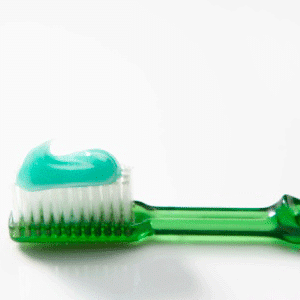Fluoride and the Kidneys
 The kidneys are believed to be the most important organ in the human body in the fight against long-term fluoride exposure. Healthy adult kidneys are able to excrete about 50 percent of ingested fluoride and are responsible for preventing toxic levels of fluoride from accumulating in the body. However, adults who have kidney disease excrete about 10 to 20 percent of ingested fluoride, which increases their body burden of fluoride and increases their likelihood of fluoride poisoning.
The kidneys are believed to be the most important organ in the human body in the fight against long-term fluoride exposure. Healthy adult kidneys are able to excrete about 50 percent of ingested fluoride and are responsible for preventing toxic levels of fluoride from accumulating in the body. However, adults who have kidney disease excrete about 10 to 20 percent of ingested fluoride, which increases their body burden of fluoride and increases their likelihood of fluoride poisoning.
Fluoride's Effect on the Brain
 Fluoride’s damaging effects on the brain has been documented by both human and animal studies. Eighteen human studies from China, India, Iran and Mexico and more than 40 animal studies show evidence that fluoride toxicity negatively affects the brain. A Chinese study [Wang SX, ZH Wang, XT Cheng, J Li, ZP Sang, XD Zhang, LL Han, SY Qiao, ZM Wu and ZQ Wang. 2007. “Arsenic and fluoride exposure in drinking water: children's IQ and growth in Shanyin County, Shanxi province, China.” Environmental Health Perspectives 115(4):643-7.] examined 524 children, ages 8 to 12, for “fluoride exposures in relation to intellectual functioning and growth.” The children who were exposed to high concentrations of fluoride through well water -- as high as 8.3 (mg/L)—were compared to a control group of children from neighboring villages whose well water contained 0.5 mg/L of fluoride. The high fluoride group had a four-point IQ score reduction compared with the control group, and the high fluoride group’s urine fluoride level was five times higher than the control group.
Fluoride’s damaging effects on the brain has been documented by both human and animal studies. Eighteen human studies from China, India, Iran and Mexico and more than 40 animal studies show evidence that fluoride toxicity negatively affects the brain. A Chinese study [Wang SX, ZH Wang, XT Cheng, J Li, ZP Sang, XD Zhang, LL Han, SY Qiao, ZM Wu and ZQ Wang. 2007. “Arsenic and fluoride exposure in drinking water: children's IQ and growth in Shanyin County, Shanxi province, China.” Environmental Health Perspectives 115(4):643-7.] examined 524 children, ages 8 to 12, for “fluoride exposures in relation to intellectual functioning and growth.” The children who were exposed to high concentrations of fluoride through well water -- as high as 8.3 (mg/L)—were compared to a control group of children from neighboring villages whose well water contained 0.5 mg/L of fluoride. The high fluoride group had a four-point IQ score reduction compared with the control group, and the high fluoride group’s urine fluoride level was five times higher than the control group.
Fluoride Overload: 5 Common Sources You Need to Know About
 “Dental and Public health administrators should be aware of the total fluoride exposure in the population before introducing any additional fluoride program,” reported the World Health Organization in 1994 (i). But have they?
Since 1940, more and more individuals have begun consuming fluoridated water. Often times, that water is disguised in processed soft drinks, juices, and oral health products like toothpaste and mouth rinse. With consumption and adverse side effects on the rise, Miami dentists are beginning to caution patients to pay more attention to everyday products that may be contributing to fluoride overload.
“Dental and Public health administrators should be aware of the total fluoride exposure in the population before introducing any additional fluoride program,” reported the World Health Organization in 1994 (i). But have they?
Since 1940, more and more individuals have begun consuming fluoridated water. Often times, that water is disguised in processed soft drinks, juices, and oral health products like toothpaste and mouth rinse. With consumption and adverse side effects on the rise, Miami dentists are beginning to caution patients to pay more attention to everyday products that may be contributing to fluoride overload.
Do You Have Hidden Caries?
 Hidden caries are more common than you think. Fluoridated water, excessive use of fluoride toothpastes, and regular fluoride rinses may all contribute to hidden caries. These areas are nestled deep in the pits of teeth, undetectable to the naked eye. Take a moment to read this article and learn what you can do to identify, treat, and prevent hidden caries to preserve a life long health smile!
Hidden caries are more common than you think. Fluoridated water, excessive use of fluoride toothpastes, and regular fluoride rinses may all contribute to hidden caries. These areas are nestled deep in the pits of teeth, undetectable to the naked eye. Take a moment to read this article and learn what you can do to identify, treat, and prevent hidden caries to preserve a life long health smile!
Warning: Too Much Fluoride!
 Since the 1945 communities have been adding fluoride to water supplies. At first, the purpose was to improve general public health by treating water to help strengthen teeth. Now, however, modern research shows fluoride treatments can pose serious dental risks. Overuse of fluoride may cause hidden caries, illusive areas of plaque that may cause major dental problems.
Since the 1945 communities have been adding fluoride to water supplies. At first, the purpose was to improve general public health by treating water to help strengthen teeth. Now, however, modern research shows fluoride treatments can pose serious dental risks. Overuse of fluoride may cause hidden caries, illusive areas of plaque that may cause major dental problems.

